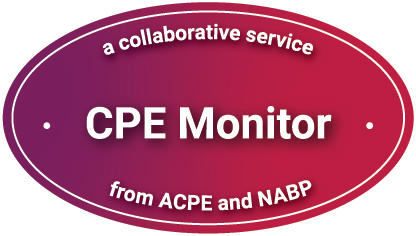
University of South Carolina College of Pharmacy
Annual Continuing Education Conference Home Studies: BOTH DAYS
To purchase individual/whole days click the links below:
Speakers and Topics:
* Please click here to view all session learning objectives, or view them at the individual registration links above!
Programming from February 10, 2024
 |
How Am I Supposed to Breath with No AIR?:
Global initiative for asthma (GINA) guideline updates for adolescents and adults with mild to moderate asthma
|
J. Skye Mitchell, PharmD, BCACP;
PGY1 Pharmacy Resident,
Prisma Health Greenville
|
.jpg) |
2024 Update In Diabetes
|
Cynthia Phillips, PharmD, CDCES;
Clinical Associate Professor, USC COP;
Clinical Pharmacist, Prisma Health Richland
|
.jpeg) |
Oh Baby: an OB Primer for the Non-OB Pharmacist
|
Ashton Mason, PharmD;
PGY2 Internal Medicine Pharmacy Resident, Prisma Health Midlands
|
 |
Biosimilars Decoded - What's in a Name?
|
Betsy Blake, PharmD, BCPS, FNAP;
Clinical Associate Professor and Director of Interprofessional Education - USC College of Pharmacy;
Clinical Pharmacy Specialist -
Prisma Health Internal Medicine - Saluda Ridge
|
 |
Opioids: the Good, the Bad, and the Ugly
|
Tate Owens, PharmD;
Clinical Pharmacist, Tandem Health
|
 |
Immunization Update 2024
|
Patricia H. Fabel, PharmD, BCPS, FAPhA;
Clinical Associate Professor, USC College of Pharmacy
|
Programming from March 16, 2024
 (2).jpg) |
2023 Beers Criteria Update
|
Karen McGee, PharmD, CDCES, BCGP;
Associate Professor, USC College of Pharmacy;
Clinical Pharmacy Specialist, Geriatrics Prisma Health Midlands PACE Whiterock
|
.jpg) |
Clearing The Fog: Debunking Common Myths in Antibiotic Practices
|
Hana Winders, PharmD, BDICP;
Ambulatory Antimicrobial Stewardship Pharmacist,
Prisma Health Midlands
|
.jpg) .jpg) |
Mythbusters: What's True, What's False, and What's Downright Silly
|
Cory Jenks, PharmD, BCPS, BCACP
Ambulatory Care Clinical Pharmacist
Optum
Kendrick Murphy, PharmD, BCACP
Clinical Pharmacist Practitioner,
PGY1 Pharmacy Residency Program Director
Western North Carolina VA Health Care System |
 |
Statin Pharmacogenomics
|
Whitney Maxwell, PharmD, MBA, BCPS;
Clinical Associate Professor, Associate Director of Experiential Education, USC College of Pharmacy
|
.jpg) |
What is a Brick:
The Power of Divergent Thinking
|
Cory Jenks, PharmD, BCPS, BCACP;
Ambulatory Care Clinical Pharmacist, Optum
|
 (2).jpg) |
Opioid Stewardship and Overdose Prevention
|
Jordan Marie Ballou, PharmD, BCACP;
Clinical Associate Professor, USC College of Pharmacy
|
Registration Fees:
|
|
Hours | Pharmacists** | Pharmacy Technicians |
|
All programming
(Saturdays, February 10
AND
March 16)
|
12
|
$130L | $60L |
- Active PEEP Preceptors: Prior to registering, please contact us to obtain the coupon code for discounted registration!
- USC College of Pharmacy Alumni: Prior to registering, please contact us to obtain the coupon code for discounted registration!
- L- Please note that fees will appear as “Learning Express” on your credit card statement
How to Earn Credit: Participants must 1) read the learning objectives and faculty disclosures, 2) listen to the video presentation and complete the interactivity quiz, and 3) complete the evaluation form. To receive credit, you must provide your date of birth and NABP number. CE credit will be submitted to the NABP CE Monitor.
Technology Requirements:
Please ensure the computer system you plan to use meets the following minimum requirements:
- Operating System: Windows, Mac OS and Linux
- Internet Browser: Internet Explorer 7.0 or higher; Mozilla Firefox 3.0 or higher; Google Chrome
- Computer Speakers or headphones connected to your computer
- Broadband Internet Connection: Cable, High-speed DSL or T1
- Monitor Screen Resolution: 320x480 or higher
- Media Viewing Requirements: Adobe Reader, Microsoft PowerPoint and HTML
Privacy and Confidentiality: Information received by the University of South Carolina College of Pharmacy for continuing education (CE) programs will be maintained in a confidential and secure manner. In order for continuing education credit to be submitted to the NABP CPE Monitor, personal information such as your NABP e-Profile ID and day and month of birth will be required along with your name and contact information.
Provider Contact Information: For questions regarding this continuing education activity, please contact our office at CE@cop.sc.edu or 803-777-9979.
CE Hours
12.00
CE Units
1.200
Activity Type
- Knowledge-Based and Application-Based
Target Audience(s)
- Pharmacists
- Pharmacy Technicians
Accreditation(s)

|
The University of South Carolina College of Pharmacy is accredited by the Accreditation Council for Pharmacy Education as a provider of continuing pharmacy education.
|
Requirements for CE Credit
Participants must sign in upon arrival and have attendance verified.
To claim credit for this activity, participants must complete the online program evaluations and must update their accounts to properly reflect their month/day of birth and correct NABP e-Profile ID. To register with NABP or look up your NABP e-Profile ID, please click on the CPE Monitor logo below to be directed to their site.
Credit that is claimed greater than 60 days from the date of the program will be automatically rejected by the CPE Monitor. Claiming credit within 30 days of the live program will ensure that any issues with transmission to the CPE Monitor can be rectified in advance of the 60-day deadline. If you would like a paper statement of credit, you may print an individual statement or a transcript from your NABP e-Profile.
|
Please choose a Fee Type from the Drop Down Menu Below:
I am a
|
At the completion of this activity, the pharmacist will be able to:
- Apply GINA guidelines to drug therapy decisions for adolescent and adult patients with mild to moderate asthma
- Distinguish the appropriate treatment track based on patient-specific factors
- Employ strategies to educate and encourage patients to adhere to evidence-based treatment plans
At the completion of this activity, the pharmacy technician will be able to:
- Recognize appropriate therapeutic interchanges for patients using an anti-inflammatory reliever (AIR) or maintenance and reliever therapy (MART)
- Calculate the appropriate day supply for an asthma inhaler written to follow new GINA guidelines
- Identify patients who would benefit from additional counseling from a pharmacist
Activity Number
0062-0000-24-014-H01-P/T
Release Date:
Feb 10, 2024
Credit Expiration Date:
Feb 10, 2027
CE Hours
1.00
At the completion of this activity, the participant will be able to:
- Describe approaches to promote positive health behaviors in persons with diabetes
- Discuss individualization of pharmacologic approaches of therapy for diabetes
- Explain challenges associated with use of diabetes technology
Activity Number
0062-0000-24-015-H01-P/T
Release Date:
Feb 10, 2024
Credit Expiration Date:
Feb 10, 2027
CE Hours
1.00
At the completion of this activity, the pharmacist will be able to:
- Identify common obstetric disease states
- Summarize guideline-directed therapy for common obstetric disease states
- Evaluate evidence-based therapies to optimize care in pregnant patients
- Discuss potential future areas of focus in obstetric pharmacy care
At the completion of this activity, the pharmacy technician will be able to:
- Identify common obstetric disease states
- Summarize guideline-directed therapy for common obstetric disease states
- Compare therapies to optimize care in pregnant patients
- Discuss potential future areas of focus in obstetric pharmacy care
Activity Number
0062-0000-24-016-H01-P/T
Release Date:
Feb 10, 2024
Credit Expiration Date:
Feb 10, 2027
CE Hours
1.00
At the completion of this activity, the participant will be able to:
- Define common terms associated with biological products
- Describe the nomenclature process for biologics
- Summarize recent updates for biological products
Activity Number
0062-0000-24-017-H01-P/T
Release Date:
Feb 10, 2024
Credit Expiration Date:
Feb 10, 2027
CE Hours
1.00
At the completion of this activity, the pharmacist will be able to:
- Apply the Opioid Use Disorder (OUD) criteria to evaluate patients who may be suffering from OUD
- Identify common signs of opioid withdrawal and overdose symptoms
- Identify available medications and resources to help aid people who are suffering from OUD
- Recognize South Carolina law on prescribing and filling controlled substances
- Discuss how pharmacists can play a role in helping end the Opioid Crisis
At the completion of this activity, the pharmacy technician will be able to:
- Apply the Opioid Use Disorder (OUD) criteria to evaluate patients who may be suffering from OUD
- Identify common signs of opioid withdrawal and overdose symptoms
- Identify available medications and resources to help aid people who are suffering from OUD
- Recognize South Carolina law on prescribing and filling controlled substances
Activity Number
0062-0000-24-018-H08-P/T
Release Date:
Feb 10, 2024
Credit Expiration Date:
Feb 10, 2027
CE Hours
1.00
At the completion of this activity, the pharmacist will be able to:
- Advocate for patients receiving all recommended immunizations
- Apply updates from the national immunization recommendations to patient cases
- Evaluate recently published vaccine-efficacy studies
- Compare and contrast vaccine products commonly administered in community pharmacies
- Define proper vaccine administration techniques
At the completion of this activity, the pharmacy technician will be able to:
- Advocate for patients receiving all recommended immunizations
- Explain the technician's role in providing immunizations
- Summarize updates to national immunization recommendations
- List available vaccine products commonly administered in community pharmacies
- Review proper vaccine storage and handling
Activity Number
0062-0000-24-019-H06-P/T
Release Date:
Feb 10, 2024
Credit Expiration Date:
Feb 10, 2027
CE Hours
1.00
At the completion of this activity, the participant will be able to:
- Review changes to 2023 Beers Criteria
- Discuss use of Beer's Criteria in the care of older adults
- Apply Beers Criteria to patient cases
Activity Number
0062-0000-24-020-H01-P/T
Release Date:
Mar 16, 2024
Credit Expiration Date:
Mar 16, 2027
CE Hours
1.00
At the completion of this activity, the participant will be able to:
- Identify common myths in infectious diseases
- Provide evidence debunking common myths in infectious diseases
- Discuss how dispelling common myths in infectious diseases can improve patient care and outcomes
Activity Number
0062-0000-24-021-H01-P/T
Release Date:
Mar 16, 2024
Credit Expiration Date:
Mar 16, 2027
CE Hours
1.00
At the completion of this activity, the participant will be able to:
- Articulate how medical myths came into origin
- Discover whether various medical myths are valid
- Apply the tools of Evidence Based Medicine to identify medical myths
Activity Number
0062-0000-24-022-H99-P/T
Release Date:
Mar 16, 2024
Credit Expiration Date:
Mar 16, 2027
CE Hours
1.00
At the completion of this activity, the pharmacist will be able to:
- Identify key pharmacogenomic variants associated with Statin safety and efficacy
- Evaluate literature describing the clinical impact of pharmacogenetic variants on drug safety, efficacy, and patient outcomes
- Review Clinical Pharmacogenomics Implementation Consortium (CPIC) guidelines and other relevant guidelines for pharmacogenetics-guided dosing recommendations
- Create pharmacotherapy plans for patients based on pharmacogenomic data
At the completion of this activity, the pharmacy technician will be able to:
- Identify key pharmacogenomic variants associated with Statin safety and efficacy
- Evaluate literature describing the clinical impact of pharmacogenetic variants on drug safety, efficacy, and patient outcomes
- Review Clinical Pharmacogenomics Implementation Consortium (CPIC) guidelines and other relevant guidelines for pharmacogenetics-guided dosing recommendations
Activity Number
0062-0000-24-023-H01-P/T
Release Date:
Mar 16, 2024
Credit Expiration Date:
Mar 16, 2027
CE Hours
1.00
At the completion of this activity, the participant will be able to:
- Recognize the difference between convergent and divergent problem solving
- Recall the disadvantages of convergent problem solving
- Identify the advantages of divergent problem solving
Activity Number
0062-0000-24-024-H99-P/T
Release Date:
Mar 16, 2024
Credit Expiration Date:
Mar 16, 2027
CE Hours
1.00
At the completion of this activity, the pharmacist will be able to:
- Review therapeutic guidelines for pain management and the use of opioids
- Develop workflow best practices for opioid use in a variety of practice settings
- Identify uses of technology to encourage safer opioid practices
- Discuss naloxone for community use, including administration and counseling points
At the completion of this activity, the pharmacy technician will be able to:
- Identify community resources for assist patients with opioid use disorder
- Develop workflow best practices for opioid use in a variety of practice settings
- Identify uses of technology to encourage safer opioid practices
- Discuss naloxone for community use, including administration instructions and Good Samaritan laws
Activity Number
0062-9999-24-025-H08-P/T
Release Date:
Mar 16, 2024
Credit Expiration Date:
Mar 16, 2027
CE Hours
1.00

